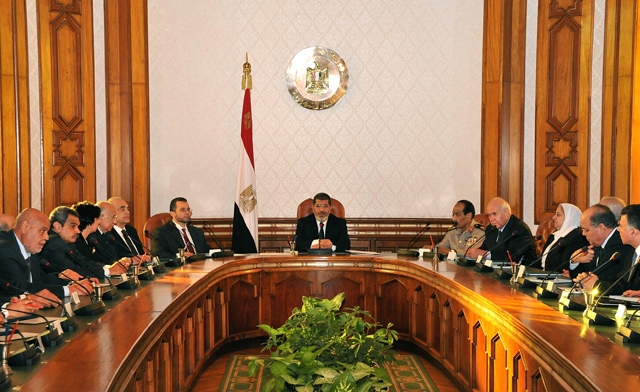Factories in the free zone complain of lack of manpower
CAIRO: Despite the unemployment crisis that plagues many of Egypt’s poorer governorates, the governorate of Port Said is claiming that it suffers from a lack of human resources needed to work in the factories that are being set up for investment projects in the free zone area.
With the textile industry in full bloom, the free zone area in Egypt is rapidly becoming a center of bustling activity, with projects and factories being launched at a fast pace, due to the slackening and simplification of export and import laws that have led foreign and local investments to pour into the area.
According to Mahmoud Abdou, president of the Port Said Investment Association, the association is currently looking for 9,000 employees to work in projects in the area worth a total investment of approximately $800 million. The problem, states Abdou, is that the manpower available in Port Said and its surrounding governorates lack the know-how required to fill the positions. Another problem is that able workers are setting their sights on better paying jobs with loftier titles.
Presently, only 180 workers have applied for positions in the production lines of the various factories for ready-to-wear textiles popping up in the free zone area. Abdou states that out of the 180, a mere 16 have gotten heavyweight jobs beyond the production lines, which indicates that while the unemployed are looking for more prominent jobs, they lack the training needed to get them such positions.
Without proper training, a great number of jobs in the factories remain vacant, thus leading factory and project investors to fill these jobs using state-of-the-art machinery and technology, which puts a dent in their budgets.
“Due to a lack of efficient and proper training, many of the factories are forced to replace manpower with machinery, which benefits no one. Not the unemployed individual looking for work, or the factory owners, who are looking for cost-saving means to get the work done, said Abdou.
The association has been quite vocal in requesting that the government, with the aid of the Ministry of Investment and the Ministry of Labor, assist them in setting up training centers so that prospective employees can attain the proper training needed to retain positions in the factories.
Currently, the association is conducting a feasibility study to determine the possibility of establishing training centers for current and potential factory workers. According to them, the investment authority has not been working hard enough to solve this problem. In order to combat this, the association has come up with a tentative solution that they have put forth to GAFI (the General Authority for Free Zones and Investments). While projects in the free zone area are already exempt from taxes, the association is requesting that one percent of profits made by projects be allocated to the establishment and upgrading of training centers.
“Aside from studying the feasibility of launching such training centers, we are also looking into finding a cost-efficient method of transportation in the residential areas in and surrounding Port Said so that employees are able to get to and from the factories to their homes without having to spend more money than they can afford on the commute, said Abdou.
According to Abdou, the continuous rise in gas, electricity and water services prices have only served to enlarge the financial burdens facing the poorer communities in the area, and is perhaps one of the reasons workers are looking for better paying jobs.
Simple safety measures have been overlooked. Moustafa Kamel, the governor of Port Said, has undertaken the responsibility of placing a security guard at Port Said Port’s main gate, and decreed that the main gate of the free zone be locked following the departure of employees working in the area. Employees working late on the job will be expected to vacate the area using the side gates once the main gate is locked.
The issue of traffic, which has become a problem as the area becomes more congested, is also on the association’s agenda, although no concrete plans have yet been made.
Another weighty issue that taxes the association is safety in the free zone area. The Port Said Port depends heavily on transit traders, stated Abdou. Many foreigners who work or visit the factories in the area in search of export opportunities are concerned with safety regulations in the port.
